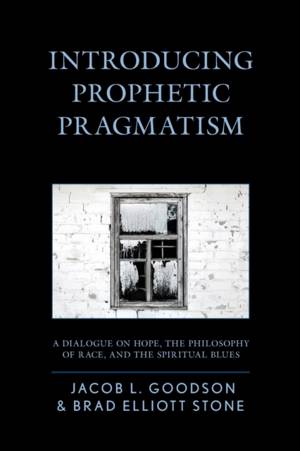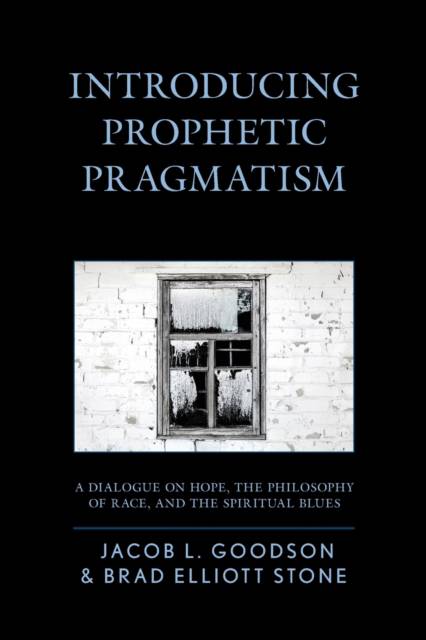
- Afhalen na 1 uur in een winkel met voorraad
- Gratis thuislevering in België vanaf € 30
- Ruim aanbod met 7 miljoen producten
- Afhalen na 1 uur in een winkel met voorraad
- Gratis thuislevering in België vanaf € 30
- Ruim aanbod met 7 miljoen producten
Zoeken
Introducing Prophetic Pragmatism
A Dialogue on Hope, the Philosophy of Race, and the Spiritual Blues
Jacob L Goodson, Brad Elliott Stone
Paperback | Engels
€ 69,45
+ 138 punten
Omschrijving
Prophetic pragmatism is a gritty philosophical framework that undergirds the intellectual and political work done by those who seek to overcome despair, dogmatism, and oppression. It seeks to unite one's intellectual vocation and one's duty to fight for justice. Cognizant of the ways in which political forces affect thought, while also requiring political action to not be so sure of itself that it simply replaces one oppressive structure with another, prophetic pragmatism requires a critical temper through the mode of Socratic questioning. Introducing Prophetic Pragmatism argues that hope lies between critical temper and democratic faith. Socratic questioning, prophetic witness, and tragicomic hope open a space for democratic energies to flourish against the forces of nihilism and poverty. Critical temper keeps democratic faith from becoming too idealistic and Pollyannaish, and democratic faith keeps critical temper from being pessimistic about the ability to change current realities. These twin pillars provide the best and most helpful framework for understanding the nature and purpose of prophetic pragmatism. Through their dialogue, Jacob L. Goodson and Brad Elliott demonstrate why prophetic pragmatism is, in the words of Cornel West, "pragmatism at its best."
Specificaties
Betrokkenen
- Auteur(s):
- Uitgeverij:
Inhoud
- Aantal bladzijden:
- 166
- Taal:
- Engels
Eigenschappen
- Productcode (EAN):
- 9781498539982
- Verschijningsdatum:
- 3/04/2023
- Uitvoering:
- Paperback
- Formaat:
- Trade paperback (VS)
- Afmetingen:
- 152 mm x 229 mm
- Gewicht:
- 244 g

Alleen bij Standaard Boekhandel
+ 138 punten op je klantenkaart van Standaard Boekhandel
Beoordelingen
We publiceren alleen reviews die voldoen aan de voorwaarden voor reviews. Bekijk onze voorwaarden voor reviews.







